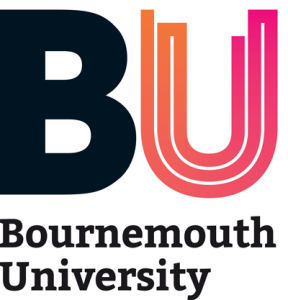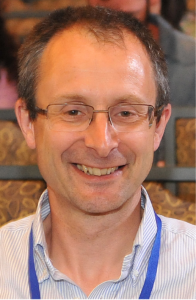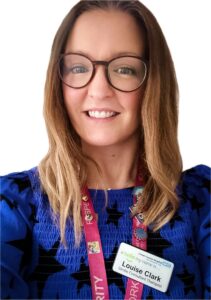2024 OPSYRIS Annual Meeting (Hybrid)
Friday 12th July 2024
Bournemouth University
Follow this link to register via Eventbrite
Click here to Download the Conference Programme
This year’s hybrid meeting will available for both in-person and virtual attendance. The programme includes both oral and poster presentations, as well as invited talks and short workshops. We will also be awarding an outstanding early career researcher or clinician with the OPSYRIS Rising Star prize.
The conference will include oral and poster presentations on a broad range of topics relating to psychological research into stroke. The deadline for abstract submissions for this year’s conference has now passed.
Decisions regarding presentations and travel awards will be confirmed by the end May 2024.
Keynote speakers include Jon Evans (Professor of Clinical Neuropsychology, University of Glasgow), Louise Clark (Sentinel Stroke National Audit Programme Associate Director, Dorset County Hospital Foundation Trust), Dr Caroline Ellis-Hill (Senior Lecturer in Qualitative Research, Bournemouth Univeristy) and Dr Sureshkumar Kamalakannan (Associate Professor, Northumbria University)
Talk Title: Thinking outside the box: Novel interventions to address the cognitive and psychological needs of people recovering from Stroke.
Jon Evans is Professor of Clinical Neuropsychology at the University of Glasgow and honorary Consultant Clinical Psychologist with NHS Greater Glasgow and Clyde. Jon was the first Clinical Director of the Oliver Zangwill Centre for Neuropsychological Rehabilitation in Ely, Cambridgeshire. He is now Programme Director for Clinical Neuropsychology training programmes at the University of Glasgow. Jon has published more than 200 papers, books and book chapters in the field of cognitive neuropsychology, neuropsychological assessment and rehabilitation. He has received several awards from the British Psychological Society including the May Davidson Award (for clinical psychologists who have made an outstanding contribution to the development of clinical psychology within 10 years of qualification); the Barbara Wilson Lifetime Achievement Award (for outstanding contribution to clinical neuropsychology in the UK) and the M.B Shapiro award (a late career award for clinical psychologists who have achieved eminence in their field). Jon is President of the International Neuropsychological Society.
Louise Clark
Talk title: Implementing the CHIME model in a stroke rehabilitation unit
Louise is a consultant occupational therapist working in Dorset, England. She is the admitting consultant for a small stroke and neurology rehabilitation unit and clinically works across the stroke pathway. Her passions are upper limb rehabilitation, spasticity and psychological care after stroke. Louise was the editor for the rehabilitation and recovery chapter of the national clinical guideline for stroke (NCG23) and is an associate director for SSNAP
 Dr Caroline Ellis-Hill Senior Lecturer in Qualitative Research
Dr Caroline Ellis-Hill Senior Lecturer in Qualitative Research
Talk Title: Humanising lifeworld-led approaches to research and practice after stroke
Caroline is a Senior lecturer and researcher at Bournemouth University with a clinical background in occupational therapy and a PhD in psychology. She has been interested in the psychology of life following a stroke for over 20 years, focusing on subjective lived experience to develop her understandings. She has written extensively, with over 50 publications. She has developed the Life Thread Model using a life narrative approach and is developing a humanising lifeworld-led approach to stroke service provision. This philosophically informed existential approach, informed by phenomenology, highlights how the human lifeworld is co-created, ever-changing, embodied and part of a living system. This offers innovative insights into the nature of relationships within stroke service provision which can support wellbeing.
Dr Sureshkumar Kamalakannan
Workshop: ‘Enhancing recruitment of underrepresented groups in stroke research’
Dr Sureshkumar Kamalakannan has versatile academic research expertise in the areas of Occupational therapy, Public Health Disability, Health Systems & Policies, and Epidemiology. He is passionate about mainstreaming disability within the agenda for health, particularly in LMICs, and is enthusiastic to strengthen or develop inclusive health systems for disability and social care worldwide. His research, teaching and advocacy activities are focused on his passion. As a strategy to achieve his passion, he does evidence brokerage for global stroke care through technology-enabled interventions for community-based rehabilitation and care, particularly focused on LMICs. He plays a key role in special committees of government agencies in LMICs to advocate for his disability within the health and social care plans. He contributes to the WHO research workstream of the World Rehabilitation Alliance and to the workforce strategy development for the World Federation of Occupational Therapy. He is a Fellow of the Higher Education Advance in the U.K. He is an honorary associate professor for the International Centre for Evidence in Disability at the London School of Hygiene and Tropical Medicine. He is a member of the scientific committee of the International Stroke rehabilitation and recovery Alliance. He is an international practitioner member of the Faculty of Public Health in the U.K. He provides technical support to the government disability department of Telangana State, and he is an associate editor for the Indian as well as the British Journal of Occupational Therapy. He was also a clinical and public health research fellow for the Wellcome Trust-DBT India Alliance.
FINAL PROGRAMME
| 9:00 – 9:25 | Registration and coffee |
| 9:25 – 9:30 | Welcome from OPSYRIS Chair and announcement of Rising Star Award |
| 9:30-11:00 | Invited Symposium:
Advancing service and intervention approaches to meet psychological needs after stroke Louise Clark (Sentinel Stroke National Audit Programme Associate Director, Dorset County Hospital Foundation Trust) Implementing the CHIME model in a stroke rehabilitation unit Dr Caroline Ellis-Hill (Senior Lecturer in Qualitative Research, Bournemouth University) Humanising lifeworld-led approaches to research and practice after stroke Dr Jon Evans (Professor of Clinical Neuropsychology, University of Glasgow) Thinking outside the box: Novel interventions to address the cognitive and psychological needs of people recovering from Stroke. Questions and Answers |
| 11:00 – 11:30 | Coffee break and Poster Session |
| 11:30-12:30 | Open Symposium 1
Working with carers, staff and services Harcourt et al – Informal caregiving following stroke: a qualitative exploration of carer self-identification, care-related language and support experiences. ONLINE – Patchwood et al – The WAterS-2 Study: upskilling a workforce to deliver inclusive, accessible psychological support after stroke. ONLINE – Steverson et al – Improving a stroke ward’s mood screening rates using the diffusion of responsibility hypothesis and statistical process control ONLINE Lucas et al – A qualitative study with healthcare professionals to understand therapeutic alliance and self-management in community stroke services. ONLINE Carroll et al – Increasing Intention to Screen for Suicidality in People with Post-Stroke Aphasia: An Online Vignette Study of Speech and Language Therapists in the UK and Australia |
| 12:30-12:45 | Rising Star Award Presentation
Dr Tom Burke Clinical and neuropsychological aspects of angiographically negative subarachnoid haemorrhage: review, assessment, intervention |
| 12:45-1:45 | Lunch and Poster Session
OPSYRIS AGM |
| 1:45-2:45 | Invited workshop:
Enhancing recruitment of underrepresented groups in stroke research Dr Sureshkumar Kamalakannan (Associate Professor, Northumbria University) Dr Shanti Farrington (Program Lead / Principal Academic, Bournemouth University) |
| 2:45-3:20 | Open Symposium 2:
Psychological intervention developments Turner et al – Co-production of a self-management programme for post-stroke fatigue (COMbAT Fatigue) Scott et al – Developing and Expanding Level One Psychological Care for Stroke: A GIRFT and Catalyst Project Rossit et al – Portable tools for visual neglect post-stroke: results of the C-Sight trial |
| 3:20-3:55 | Tea and Poster Session |
| 3:55-4:45
|
Open Symposium 3:
Assessment of cognitive and emotional issues post-stroke Gurr et al – Evaluating Cognitive Performance of Acute Stroke Patients: Dynamic Information Processing Programme (DIPP) ONLINE Patel et al – Use of the Stroke Patient Concerns Inventory in stroke outpatients’ clinics: a feasibility cluster randomised controlled trial Huw Green et al – The clinical phenomenology of anosognosia – exploring a spectrum concept Spiessens et al – Does Cognitive Reserve moderate the association between Executive Dysfunction and Depressive Symptoms? |
| 4:45-5:00 | Closing remarks from OPSYRIS Chair |
Poster Presentations
Click on Title to Download Poster





